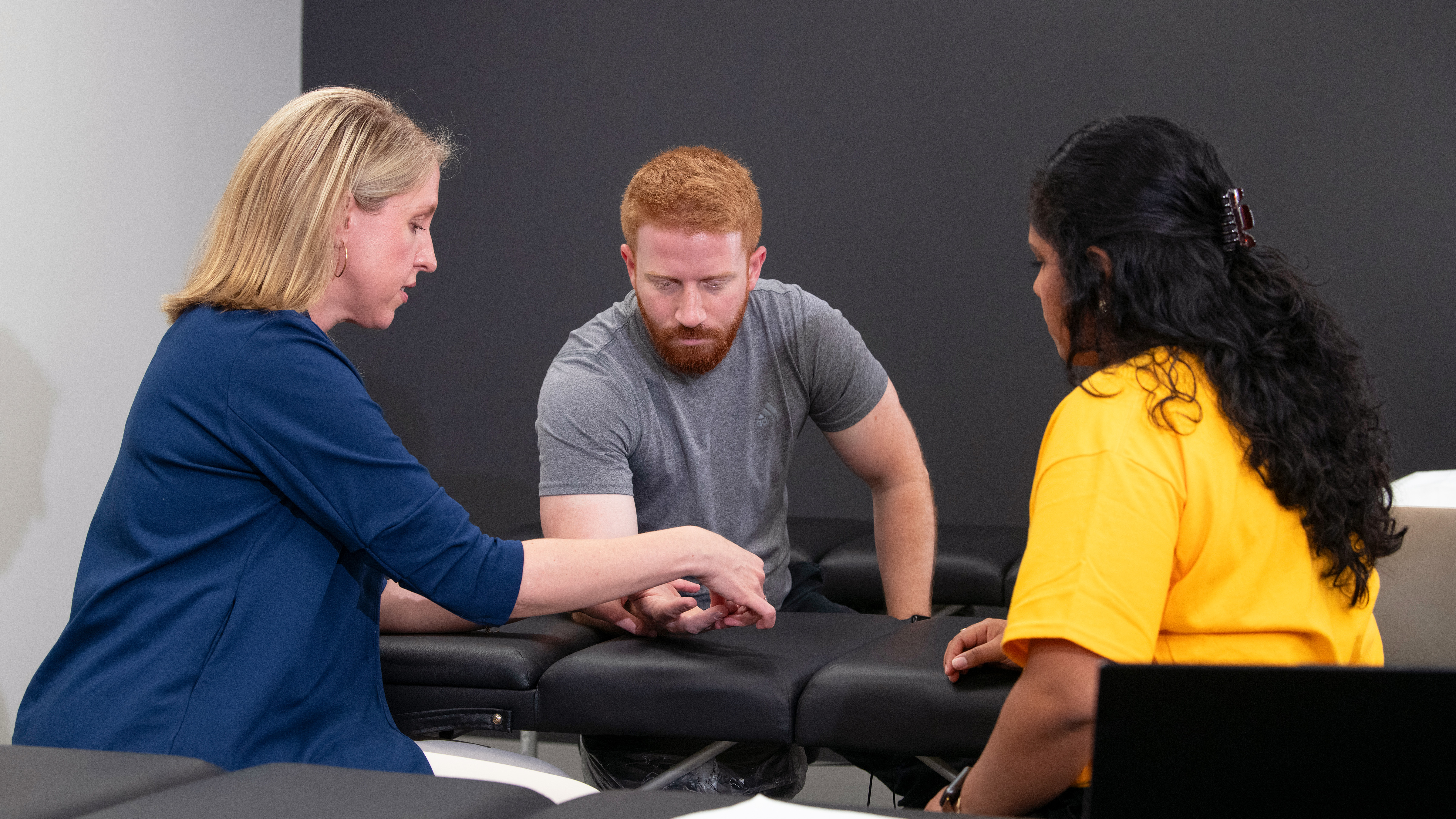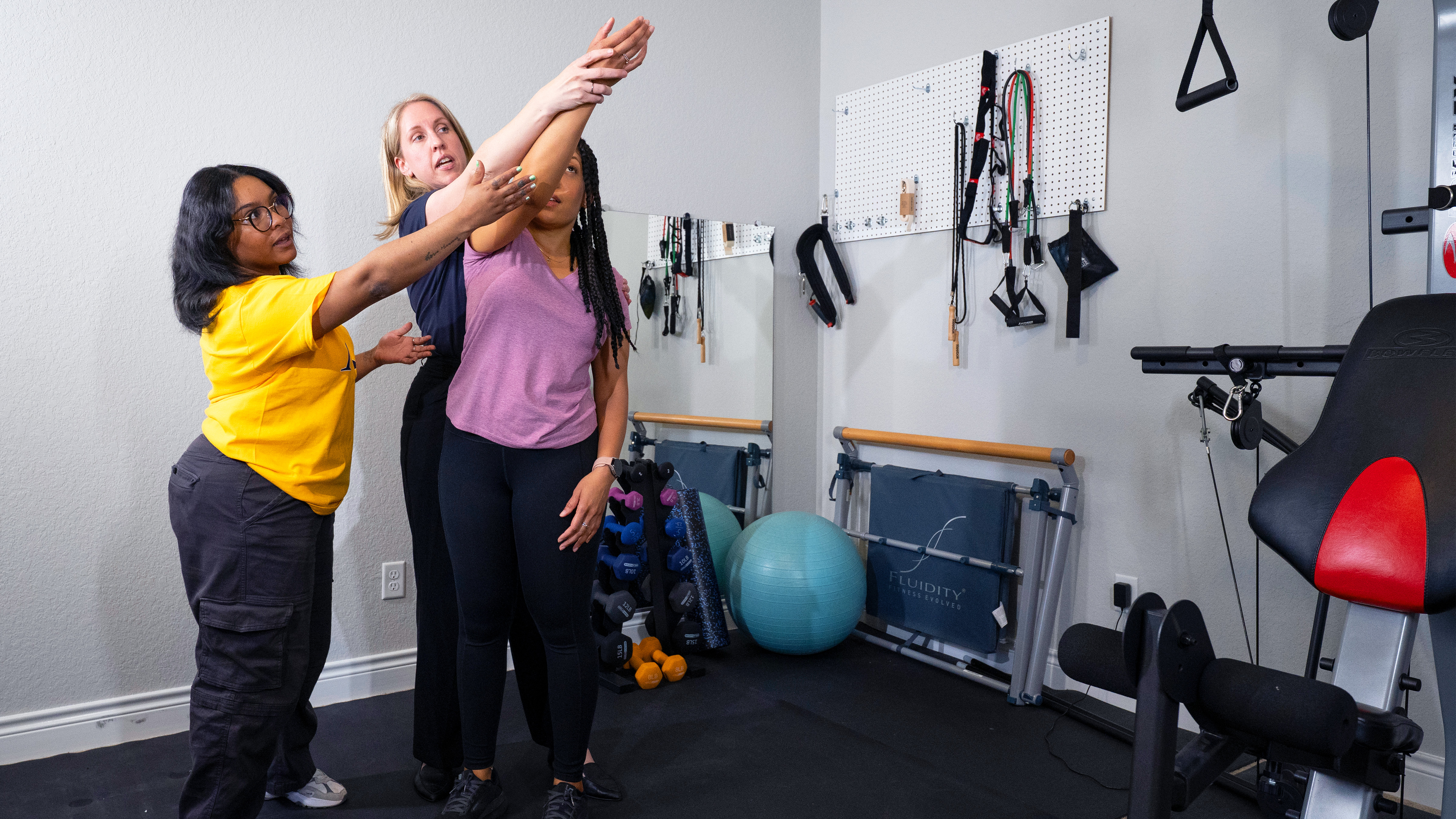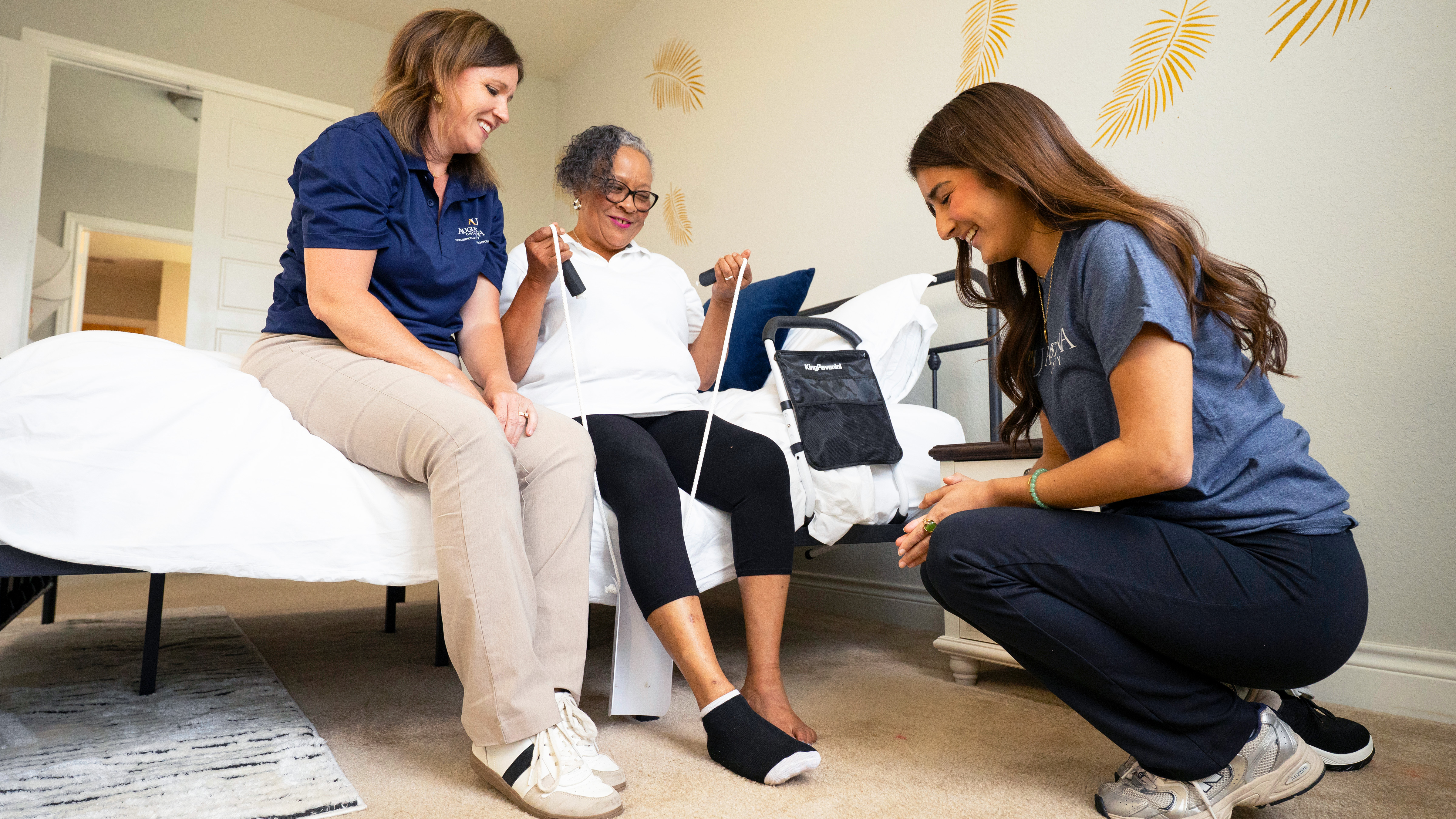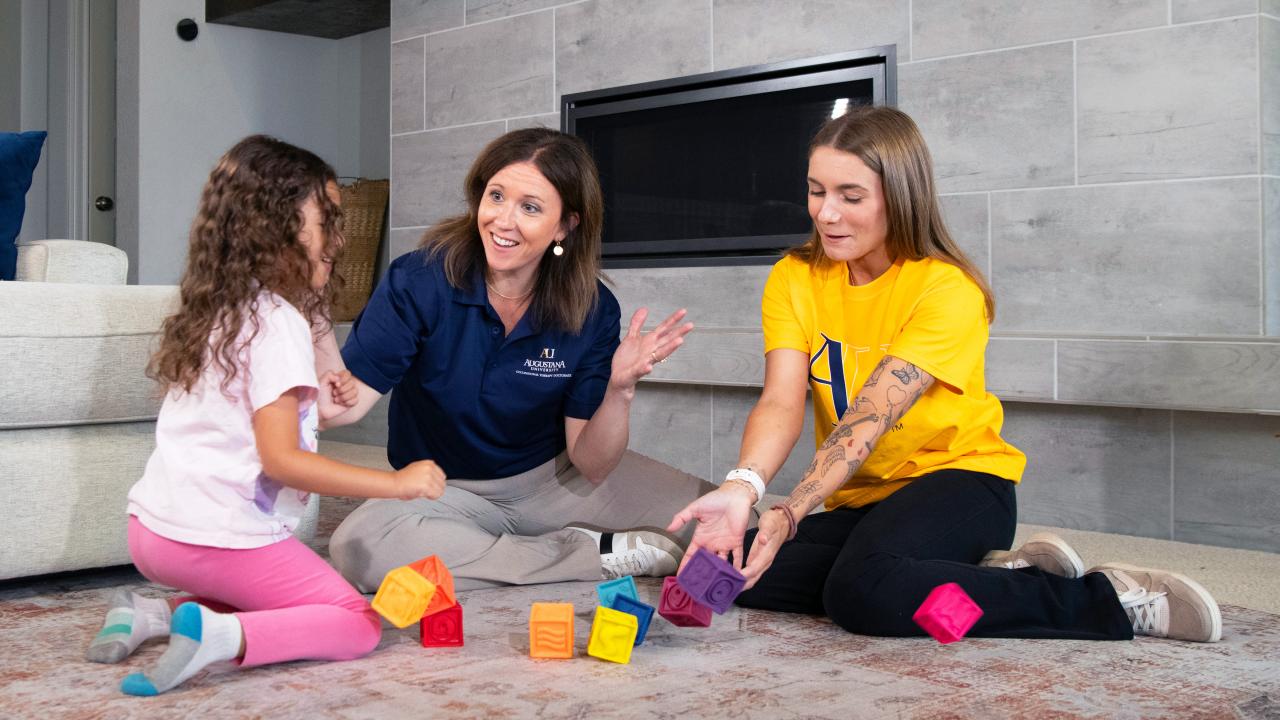Augustana University is embarking on its second doctorate program in three years. The Augustana Occupational Therapy Doctorate (OTD) program, housed within the university’s School of Health Professions, is set to launch in Fall 2026.
Adding occupational therapy (OT) — a rehabilitation profession that helps people do the things they want and need to do in their everyday lives — is part of Augustana’s strategic plan to establish new academic programs grounded in the liberal arts that challenge the intellect while responding to the needs and interests of students.
“I’m excited and feel like Augustana is a great place to have an OT program because believing in the worth and dignity and value of all people, regardless of ability, is what OT does, and that is so in line with Augustana’s mission and values,” said Dr. Melissa Kimmerling, Augustana’s program director of OTD.
 Augustana’s OTD is an accelerated, hybrid, entry-level or pre-licensure program designed to meet adult learners where they're at in life — allowing them to remain in their existing, socially-supported environments. The hands-on component of the program, known as lab immersions, will take place on the south side of the Twin Cities in Minnesota — close to Interstate-35 and the Minneapolis-St. Paul (MSP) International Airport.
Augustana’s OTD is an accelerated, hybrid, entry-level or pre-licensure program designed to meet adult learners where they're at in life — allowing them to remain in their existing, socially-supported environments. The hands-on component of the program, known as lab immersions, will take place on the south side of the Twin Cities in Minnesota — close to Interstate-35 and the Minneapolis-St. Paul (MSP) International Airport.
“When considering different markets, Augustana landed on Minnesota for many reasons. The university has a large alumni presence in the area that we can capitalize on, Board of Trustees members that live in the area who can provide connections and market data shows there are jobs in these areas,” Kimmerling explained. “The current number of OT schools in the Upper Midwest are not filling the demand.”
But, Kimmerling hopes the recruitment doesn’t stop there. She expects that one-third of the program’s students will be those who have already received bachelor’s degrees from Augustana, another third from the surrounding region and the remainder from other parts of the country. The hope, though, is that these students remain in their communities — creating service lines in areas where there aren’t any or a limited number of OTs. Speaking from experience, better access to occupational therapy professionals (OTPs) can make a huge difference in the lives of others.
 “There’s a need for practitioners. I’m from a town of 1,500 people, and I know what it was like for me to drive to Omaha three days a week to get the therapy I needed and how much school I missed because rural America doesn’t have what it needs,” said Kimmerling, who now resides in Papillion, Nebraska, and is the Nebraska ambassador to the National Board for Certification in Occupational Therapy (NBCOT).
“There’s a need for practitioners. I’m from a town of 1,500 people, and I know what it was like for me to drive to Omaha three days a week to get the therapy I needed and how much school I missed because rural America doesn’t have what it needs,” said Kimmerling, who now resides in Papillion, Nebraska, and is the Nebraska ambassador to the National Board for Certification in Occupational Therapy (NBCOT).
The program director’s passion for OT began in high school following a life-altering car accident. As a result, Kimmerling suffered 18 broken bones, including five broken vertebrae, nine ribs, her right hip and clavicle, as well as two bones in her right wrist.
“My mental health improved when I could be independent with those ‘occupations’ again — when I didn’t need help getting out of bed; when I didn’t need somebody with me to shower or go to the bathroom,” said Kimmerling. “I made that connection between when I got better and when I started feeling better in those occupations, those daily activities.”
“It took me a while to share my story, but I thought, if I can do anything to cope with what happened to me, and if I could use it to help other people through insight into what it feels like to have your life change like that, I should do that.”
Kimmerling believes her story and deep understanding of OT are powerful in helping OT students realize the weight of what they’re doing — the professionalism and commitment that they owe their clients.
 “Occupational therapists work with people whose bodies will (likely) not get better, whose situations will not change, who will have that disability forever. We help find solutions to engage in those things (occupations) to help them live as independently as possible,” Kimmerling explained. “If a person doesn’t have the ability to live independently, we help them engage in meaningful occupations that improve their quality of life.”
“Occupational therapists work with people whose bodies will (likely) not get better, whose situations will not change, who will have that disability forever. We help find solutions to engage in those things (occupations) to help them live as independently as possible,” Kimmerling explained. “If a person doesn’t have the ability to live independently, we help them engage in meaningful occupations that improve their quality of life.”
The Augustana OTD Program will consist of six total trimesters, taking place over the course of two calendar years. Three trimesters will include didactic online instruction and a 7-10 day lab component every eight weeks. The following trimesters will include 24 weeks of full-time fieldwork and a 14-week Capstone Experience and Project to demonstrate what they’ve learned in the program.
“As part of the Capstone, students will gain in-depth exposure to one or more areas in occupational therapy, including clinical skills, research skills, administration, program development & evaluation, policy development, advocacy, education and leadership,” Kimmerling said. “They would be prepared to work in a hospital, rehab center, skilled-nursing, outpatient clinic, as well as children and youth practice areas, like schools and clinics.”
While not a requirement of the program, Augustana is developing additional fieldwork experiences for OTD students. The university is working with Augustana's De & Dave Knudson Center for Global Engagement and Therapy Abroad to offer students hands-on learning opportunities internationally in Belize or Dominica.
Augustana has hired four faculty members, including Kimmerling, to support the program and will hire two more this year. Additional faculty will come with the growth of the program. Augustana has a goal of recruiting 20 students in its first year, doubling that number in its second year. The inaugural class would graduate in August 2028 upon approval of the Accreditation Council for Occupational Therapy Education (ACOTE).
For more information on the Augustana University OTD Program, visit augie.edu/OTD.
